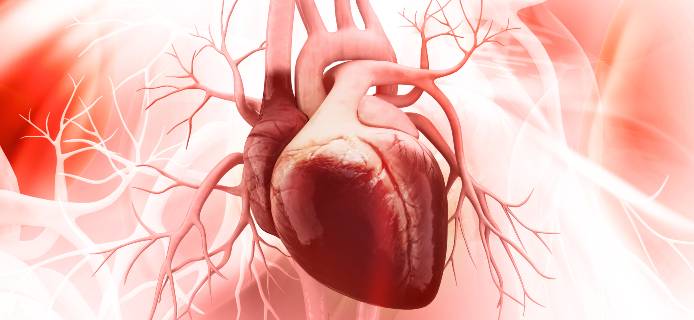Novel Gene Therapy for Heart Failure Shows Initial Promise of Efficacy, Safety at 12 Months
The 3 patients in cohort 1 have exhibited clinically meaningful improvements and no safety concerns. Follow-up for the 5 patients in cohort 2 is ongoing.
(Adobe Stock)

Three patients with congestive heart failure (HF) dosed with a novel adeno-associated virus (AAV) vector gene therapy and followed for a year have demonstrated clinically meaningful improvements with no safety concerns, investigators shared at the American Society of Gene & Cell Therapy 25th Annual Meeting (ASGCT), held in Washington, DC, and virtually May 16-19, 2022.1
With heart disease considered among the leading causes of mortality around the world, the need for innovative therapies is critical. Heart failure has been identified as an opportunity for gene therapy via gene transfer technology, targeting abnormal intracellular Ca2+ handling and increased protein phosphatase activity.
In results presented at ASGCT, investigators reported on the safety and feasibility of the novel AAV in development by AskBio, AAV2i8 (NAN-101), which is cardiotropic and de-targets the liver to deliver a constitutively active protein phosphatase 1 inhibitor 1 (I-1c), AAV2i8.I-1c. It is delivered via a single antegrade coronary artery infusion, and the study included 3 dose levels.
Twelve-month follow-up data were available for 3 patients in cohort 1 of the first-in-human dose-escalation trial, while follow-up for the 5 patients in cohort 2 is ongoing.
The first cohort included 3 patients with non-ischemic cardiomyopathy and New York Heart Association (NYHA) Class III symptoms of HF. Mean age was 70.0 years, and 2 (67%) patients were male, 1 female. Two patients in cohort 1 are White and 1 is Black.
Additionally, “quantifiable measures of biological activity across a number of parameters, important for assessing HF status, could be detected in patients in cohort 1 in this cardiac gene therapy trial,” the research team reported.
Measures of efficacy included changes in NYHA classification, VO2 max assessed by cardiopulmonary exercise testing, 6-minute walk test, left ventricular ejection fraction (LVEF), and left ventricular regional wall motion.
NYHA classification measured 3 for all 3 patients in cohort 1 at baseline. The difference at 12 months was -1, -2, and -1, for each of the 3 patients, respectively. Compared with baseline LVEF percentage measurements of 37.5, 29, and 34 at baseline, all 3 patients exhibited improvements of 10.5, 22, and 6 percentage points, respectively, at 12-months of follow-up.
One patient in cohort 1 registered a 5% increase in LVEF, while another saw a 10-point decrease on the Minnesota Living With Heart Failure® Questionnaire tool. Additionally, 1 patient in cohort 1 experienced a 1.5 mL/kg/min increase in their VO2 max, while another had a 50-m increase in their 6-minute walk test.
Over the course of a year, 2 patients in cohort 1 experienced > 1 treatment-emergent adverse event (TEAE), although none were considered related to the study treatment.
The second cohort includes 5 patients for which follow-up is still ongoing. The mean age is 58.8, and 4 (80%) of the 5 patients are male and White.
To date, all 5 patients in cohort 2 have experienced > 1 TEAE, with 9 series TEAEs reported in 3 patients during the post-intervention period. One of those series TEAEs had a fatal outcome, which was deemed to be due to substance abuse and noncompliance of concurrent medications.
Additionally, 4 of the 5 patients in cohort 2 developed mild transient increases in aspartate transaminase and alanine transaminase 4-12 weeks post-infusion.
Next steps include a proposed randomized, double-blind, placebo-controlled phase 2 trial, presenter Roger Hajjar, MD, director of the Cardiovascular Research Center and the Arthur & Janet C. Ross Professor of Medicine at Icahn School of Medicine at Mount Sinai, reported at ASGCT.